In the past, Vietnamese society was divided into 4 classes, including scholars, farmers, artisans, and merchants, in which scholars ranked first and received the most honor, praise, and respect from others. Translator, author and journalist Nguyen Xuan Hong, who has spent years researching Vietnamese traditional culture, elaborates on the school system in the past. “The most typical model was normally learning at the teacher’s own home as there were no government-run schools. In the 11th century, under the Ly dynasty, Vietnam had its first national university, “Quoc Tu Giam”. The school was initially used to educate the Princes and children of high-ranking officials only, then was expanded to receive other prominent students in the country. In the 13th century, King Trần Thái Tông instituted the first formal imperial examination to choose the best scholars for vacant positions in the royal court. Many people moved from a low social status to becoming government officials thanks to success in those examinations”
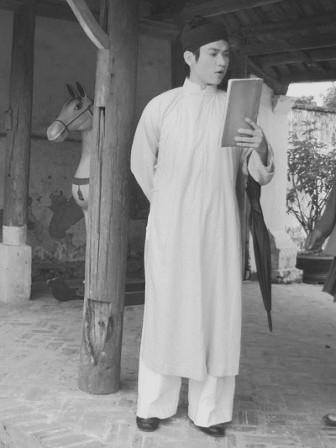 |
| In the past, Vietnamese society was divided into 4 classes, including scholars, farmers, artisans, and merchants, in which scholars ranked first and received the most honor, praise, and respect from others (Source: Violet.vn) |
Students often attended school to receive training at very young age, normally from 4 to 6 years old. After achieving some positive results in their studies, students would receive permission from their teachers and local authorities before attending the examinations, which were open for any male, of any age, except the lower classes. Xuan Hong explains the examination system: “One would have to pass three examinations, including inter-provincial, pre-court, and court examinations to earn the highest prize - “Doctor Degree”. Some necessary skills that would be examined were composing poems following a set of strict rules, commenting on royal administrative documents, showing general knowledge through questions and answers, and so much more. The court examination, which decided the first prize winner, took place under the direct control of the King. This was the final and also the most advanced level that one had to pass to have a great career.”
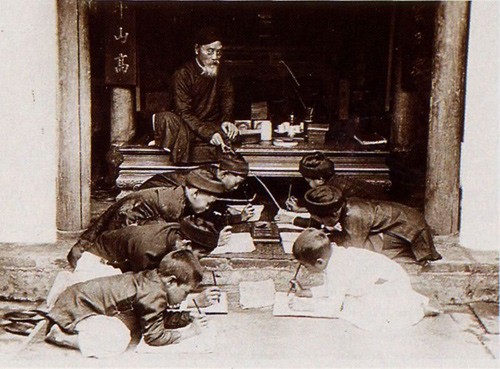 |
| Students often attended school to receive training at very young age, normally from 4 to 6 years old (Source: Newszing.vn) |
Learning seemed to be more valuable than anything, as it seemed to be a life- changing opportunity for talented people. Mr. Nguyen Doan Tan, now 84, recalled how the examinations took place. “The imperial examinations were held every 3 years to select the most talented people among the commoners. Due to the fact that there were no vehicles available at that time, people had to walk from their hometown to the place of examination on foot. Sometimes, it took them months to reach the destination. The location for the examinations were not fixed, usually they took place in large places like widen open fields, or squares, so, participants had to set tents and bring bamboo beds along to sleep in. However, the examination process was so demanding, with many rules that participants had to follow strictly to prevent cheating”
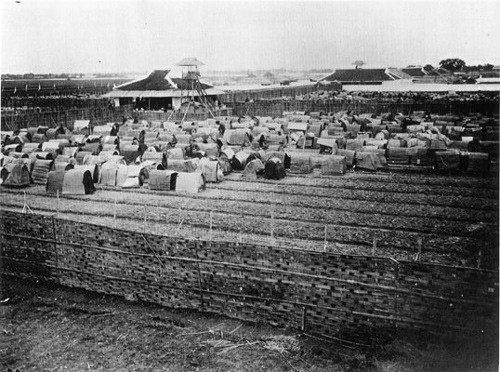 |
| The location for the examinations were not fixed, usually open fields, or squares, so, participants had to set tents and bring bamboo beds along to sleep in (Source: Newszing.vn) |
Regarding the strict rules of the Vietnamese court exam system, researcher Xuan Hong gave an example: “A thick folder, which was sewn from blank pieces of papers, was carefully checked and given to each student prior to the exam. To ensure fair competition, strict security precautions were followed. For example, a folder was accepted only when it had two red seals appended inside. The first was sealed inside two pages to prevent participants from changing or using papers taken in from outside. The second seal was appended by an examiner, who could control all the actions of the participants from a watch-tower built in the middle of the field, in order to check whether they used tricks or used any secret signals. The examination locations were seriously protected around the clock to prevent any cheating.”
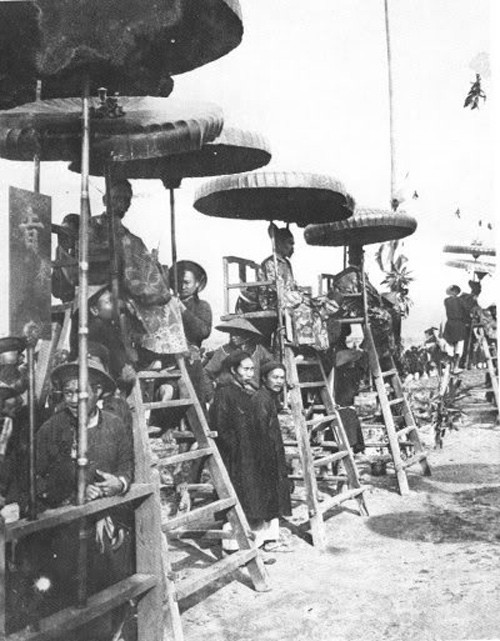 |
| The examiners sat in the watch-towers built in the middle of the field, in order to check whether students used tricks or any secret signals during the examination (Source: Newszing.vn) |
In such examinations, there were many mistakes that participants should avoid. For example, never mention the name of the King, the previous Kings and King’s relatives on the paper, or even use bad words next to the word “King” as it could get examinees sent to prison for life. The words as “I”, “myself”, “mine” should be avoided because respecting or highlighting the ego was unacceptable. Due to the very strict rules of the examinations, the winners were all outstanding. Thus, they were respected and would be appointed to important positions in the royal court. Mr Tan retold the story of the ceremony held for the winners. He said: “The result was published almost immediately 1 or 2 days after the exams. The day the results were published attracted everyone’s attention. A large board was hung high to let everybody know who had passed the examination. The first winner then received prizes and then a special ceremony returned him to his hometown. Everybody was so excited and jubilantly welcomed the new winner. His name would be carved into the stele in the Tempe of Literature to memorize and honor them forever.”
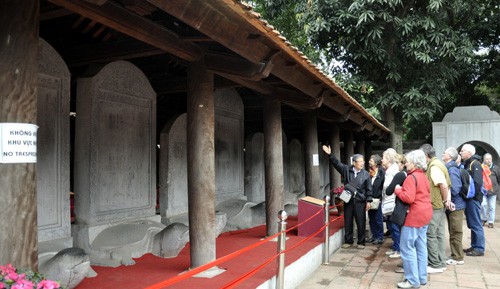 |
| The names of the first winners are carved into the steles in the Tempe of Literature (Source: Dantri.vn) |
Those who failed the exams or just achieved a lower degree normally returned home to become village teachers or kept learning and waited for the next exams. In addition, the government also held military exams to select army officers. The candidate was expected to master martial skills such as archery, horsemanship and weight lifting. The chosen one then served in the military. Some people, even at the age of 60 or 70, still practiced and prepared for the court exam with the hope of bringing fame to their families. Talking about the Vietnamese court examination system, student Binh Minh said: “I realize that traditional Vietnamese people were very patient and also had a passion for education and examinations. They are examples for us to follow. Of course, there still remain differences between the past and present. Now we learn other subjects and take exams in a totally different way.”
Another student, Phan Dieu Thuy Linh, said: “There are some similarities and differences between the examination systems, but, I think the most important thing is the learning spirit passed down from generation to generation, which should be loved and treasured.”
This week, we’ve been talking about the Vietnamese court examination system and its values. We welcome your feedback at: English section, VOVworld, Radio Voice of Vietnam, 45 Ba Trieu Street, Hanoi, Vietnam. Or you can email us at: englishsection@vov.org.vn. Tune in to our English program on the Internet at vovworld.vn. Good bye. See you next time.